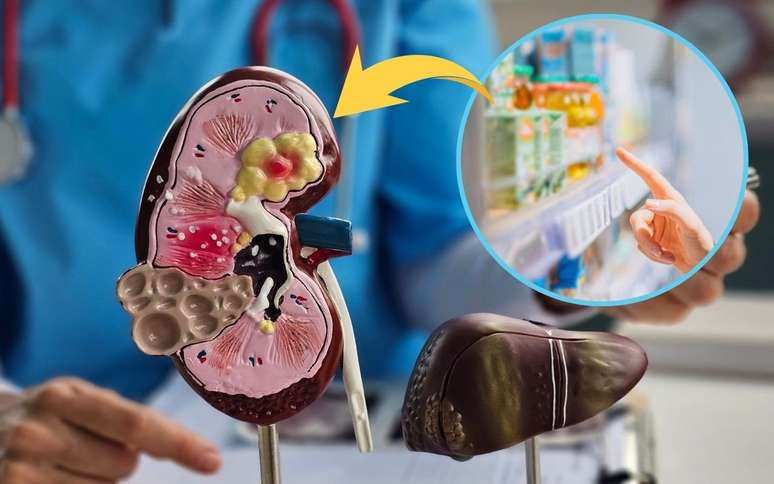Adequate rest is important for tasks such as learning, reasoning and creating associations, as well as helping to clean the brain
The lack of sleep can increase the possibility that an individual believes Conspiracy theories, According to a research published in Journal of Health Psychology.
“Giving priority to quality sleep can improve both mental and physical health. This, in turn, can strengthen critical thinking and Resistance against disinformation In an increasingly complex world, “says Daniel Jolley, professor of social psychology at the University of Nottingham and first author of the study.
President of the Brazilian Sleep Medicine Association (ABMS), Almir Tavares recalls that, in the past, Sleep was not so appreciated. “But from time to time we have seen that it is very important and has effects on our way of dealing with our thoughts,” he says.
“At any time, we are bombed by thoughts – some important, some useless. When we are well and rested, we can better distinguish what really matters and discard unnecessary thoughts, including depressive and cars -depretative”, he explains.
“But when we sleep badly, we could not filter some thoughts and we remained At the mercy of false news and nonsense. We do not have a mental force to delete or ignore this information, “he adds.
How was the research done?
Jolley says that the project came from the lack of studies on the subject. “We know a lot about cognitive prejudices, social influences and personal traits that explain Because people believe in conspiracy theories. However, few research has analyzed the role of sleep “, he comments, observing that further studies are needed to establish a relationship of cause and effect.
Scientists therefore tried to investigate how poor sleep quality could influence beliefs in such ideas and possible mechanisms behind this connection.
For this, they divided the study into two phases. “In the first, 540 participants underwent a standard evaluation of sleep quality before reading Fire at the Notre-Dame Cathedral, in 2019. Half of them saw a conspiracy version that suggested a fire, while the other half read a factual relationship that attributed the episode to an accident, “says Jolley.
After exposure to different versions of the fire, the volunteers responded to a series of statements that indicate what they agreed with each one through a Likert scale (“totally disagreement” to “totally agree”, for example). The responses were therefore combined to create an index of belief in the specific conspiracy theory on the fire of the French cathedral.
“The results showed that the participants with Poor quality of sleep They had significantly more likely to believe in the conspiracy version “, he continues.
The second phase had 575 participants and explored psychological factors, such as depressionParanoia and anger, to understand how these factors, which have improved by poor quality of sleep, refer to the belief in conspiracy theories.
Depression and conspiracy
The researchers observed that depression was a coherent mediator factor between poor sleep quality and conspiracy belief. “This emotional state can induce individuals to seek meaning in the environment that surrounds them. Conspiration theories often offer simple and structured explanations for complex issues, becoming attractive in these conditions,” suggests Jolley.
Other psychological factors, such as paranoia and anger, have also presented mediation, but less consistently. It is interesting to note that the anxiety He did not play a significant role in mediating the relationship between a bad sleep and conspiracy beliefs, which contradicts the previous results.
Research suggests that this can occur because anxiety often coexists with other psychological problems, such as depression itself, and associated conditions could “obscure” the effect of the disorder.
Sleep and cognitive functions
According to Paulo AFONSO MEI, neurologist and coordinator of the Scientific Department of Sleep Medicine of the Brazilian Association of Neurology (Abn), sleep helps to repair memories. It also helps to clean the brain, in particular the surrounding environment of the neurons by removing potentially harmful substances through a system called Glymphatic. “Therefore, sleeping well is to guarantee that we have the ability to learn, reason, make cognitive associations and establish new connections – what we call neuroplasticity – during the day,” he says.
A poor quality of sleep, according to the neurologist, can compromise the control of emotions and worsen the symptoms of depression and anxiety. “An associated study insomnia With hyperfunction of cerebral regions such as the amygdala and the anterior cirphic cortex, which translates into a greater possibility of negative and refractory thoughts, drug resistant “, exemplifies.
Not sleeping well can still cause a greater atrophy of the regions of the prefrontal and parietal cortex essential for the execution of cognitive functions such as planning, abstraction, associations and the ability to perceive and situated over time and space (temporarily spore orientation), says Mei.
The need to sleep varies throughout life. In the case of teenagers, for example, it is indicated to rest between 7 and 11 hours. For adults, it is recommended to rest between 6 and 10 hours.
“People who sleep above or under this temporal window are subject to the greater possibilities of losses of various orders,” says Mei. In addition to cognitive impacts, there is a higher risk of cardiovascular problems, such as Race (race) AND infarction; endocrine, like diabetes AND obesity; and metabolic, such as accelerated aging through free radical action, add the neurologist.
What are conspiracy theories?
According to Katerina Hatzikidi, anthropologist and professor at the University of Tinginga, Germany, The theories of conspiracy are not a new phenomenon. “They have always been observed in human societies. Somehow arise as a claim to transparency in relation to people’s shares with more power in societies,” he says.
“They want to question what is sometimes perceived as the invisible functioning of power and/or government or want to make society aware of some issues considered wrong or immoral,” he adds.
Theories are a form of criticism or imitation of criticism against power. But in some situations they may have lighter political objectives. This happens, for example, when the political groups themselves create conspiracy ideas to generate indignation in the population.
Scientist politician Michael Barkun, an emeritus professor at the University of Syracuse in the United States, defined three key criteria to recognize conspiracy theories with little or no basis in reality:
- 1) Nothing is what it seems to be;
- 2) nothing happens by chance;
- 3) Everything is connected.
Katerina stresses that many see the discovery of a conspiracy theory as a “awakening”, which causes a change in perspective in life, including social relationships, habits and the way of seeing the world.
“People can, for example, stop watching some news channels and changing more” reliable “. They want to do their research, which means that they want to go to the” source “, the source” of the truth “and distinguish for their own” what is true from what is false ” – usually live with the theories of conspiracy to which they are more connected”, says the teacher.
If connected to the movements of political extremism, this situation can generate risks for democracy. “THE January 8, 2023In Brazil, it is an example of how a conspiracy theory on an alleged electoral fraud has led to a significant challenge for democratic institutions and the risk of a coup d’état, “he says.
“On the other hand, in Georgia, where in reality an electoral fraud occurred in 2024, citizens went down to the mass roads to protest against fraudulent elections and an illegitimate government. In this case, people were reacting against a successful conspiracy and their protests were defending the democratic and Eque elected values”, adds Katerina.
For her, the best way to combat adherence to conspiracy theories is to invest in education and public policies that integrate pedagogical initiatives at the beginning. The goal is that people know how to identify and reject false informationIn addition to critically evaluate the non -verifiable or ambiguous content.
Source: Terra
Ben Stock is a lifestyle journalist and author at Gossipify. He writes about topics such as health, wellness, travel, food and home decor. He provides practical advice and inspiration to improve well-being, keeps readers up to date with latest lifestyle news and trends, known for his engaging writing style, in-depth analysis and unique perspectives.








